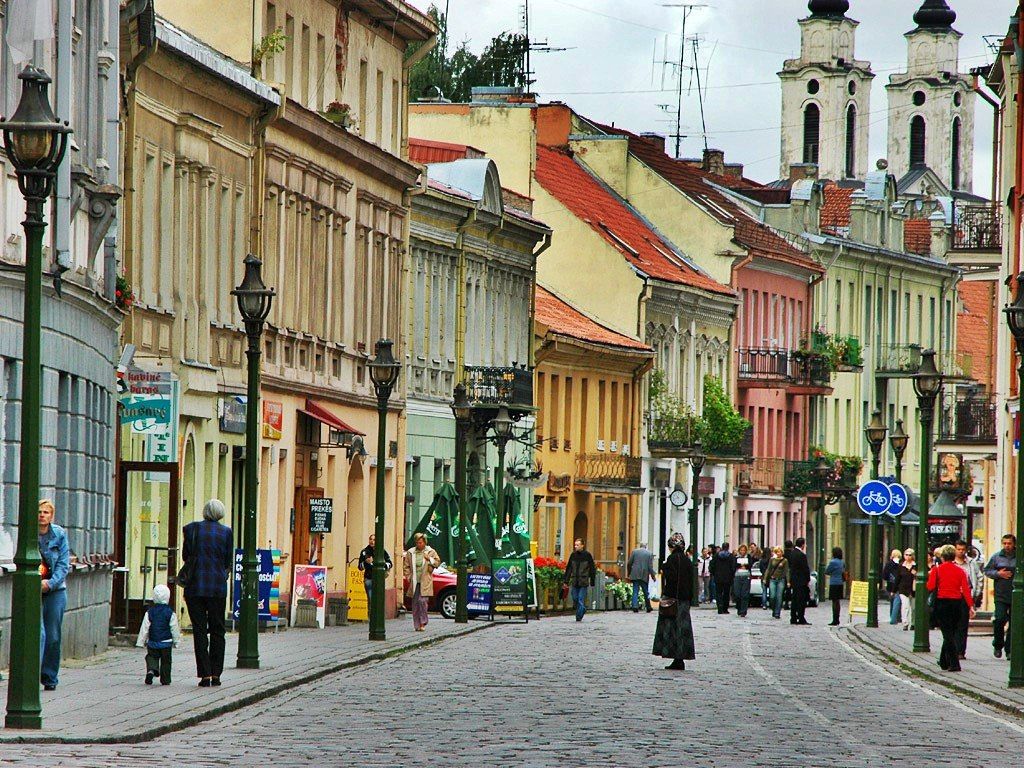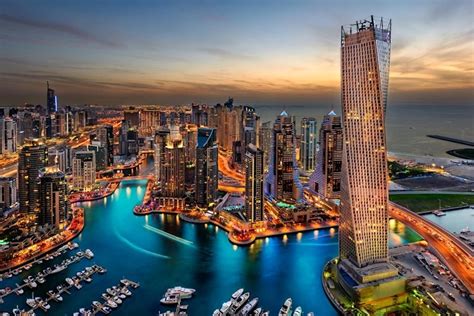Introduction to Middle Eastern Cuisine
Middle Eastern cuisine is a culinary journey that takes you through a landscape of vibrant flavors, aromatic spices, and rich traditions. From the diverse regions of the Middle East, this cuisine offers a unique blend of textures and tastes that have captured the hearts and taste buds of food enthusiasts worldwide. In this blog post, we will dive into the spices and flavors that make Middle Eastern dishes so mesmerizing, explore traditional dishes that are a must-try, uncover the secret ingredients that elevate the cuisine, and discover the best Middle Eastern restaurants in Dubai, along with tips for enjoying and appreciating this culinary art. Get ready to embark on an extraordinary gastronomic adventure that will tantalize your senses and leave you craving for more.
Introduction to Middle Eastern Cuisine
The Middle Eastern cuisine is characterized by its rich flavors, aromatic spices, and unique cooking techniques. It is a combination of various culinary traditions from countries such as Lebanon, Israel, Iran, and Saudi Arabia. The cuisine reflects the region’s history, culture, and geography, resulting in a diverse and flavorful culinary experience.
This cuisine is known for its exotic ingredients, which include herbs like mint, parsley, and cilantro, as well as spices such as cumin, coriander, and turmeric. The use of olive oil, yogurt, and tahini is also prevalent in Middle Eastern cooking. These ingredients not only enhance the taste of the dishes but also provide numerous health benefits.
One of the key features of Middle Eastern cooking is the importance given to communal dining. Meals are often shared with family and friends, creating a sense of togetherness and unity. In addition, Middle Eastern cuisine is known for its generous use of fresh fruits, vegetables, and legumes, making it a healthy and nutritious choice.
- Blend of Flavors: Middle Eastern cuisine offers a harmonious blend of flavors, combining sweet, savory, and tangy elements. A single dish can incorporate a variety of spices, creating a unique and unforgettable taste.
- Vegetarian Options: Middle Eastern cuisine caters well to vegetarians and vegans, with numerous dishes that are entirely plant-based. From falafel to hummus, there are plenty of delicious options for those looking for meat-free meals.
- Rich Cultural History: Middle Eastern cuisine has a rich history that dates back centuries. Each region and country has its own culinary traditions and specialties, reflecting the diverse and vibrant cultures of the Middle East.
| Country | Specialty Dish |
|---|---|
| Lebanon | Tawook |
| Iran | Kebab |
| Israel | Hummus |
| Saudi Arabia | Mandi |
Overall, Middle Eastern cuisine offers a fascinating and enticing array of flavors, spices, and dishes. Whether you are a fan of hearty meats or prefer vegetarian options, there is something for everyone to enjoy. So why not embark on a culinary adventure and explore the wonders of Middle Eastern cuisine?
Exploring the Spices and Flavors of the Middle East
When it comes to culinary delights, the Middle East is a treasure trove of spices and flavors that tantalize the taste buds. The region’s cuisine is known for its rich and diverse use of spices, which adds depth and complexity to every dish. Whether you are a spice enthusiast or simply curious about Middle Eastern flavors, this blog post will take you on a journey. Let’s dive in and explore the vibrant and aromatic world of Middle Eastern spices.
The Middle East is a melting pot of cultures, and its cuisine reflects this diversity. One of the key ingredients in Middle Eastern cooking is spices. The region is renowned for its use of a wide variety of spices, such as cumin, coriander, turmeric, cardamom, cinnamon, and cloves. These spices not only enhance the flavor of dishes but also offer a range of health benefits. For example, turmeric, with its vibrant yellow color, is known for its anti-inflammatory properties, while cinnamon is believed to help regulate blood sugar levels.
One of the most iconic spice blends in Middle Eastern cuisine is Ras el Hanout. Translated as “top of the shop,” this aromatic blend consists of various spices, including cardamom, cinnamon, cumin, ginger, nutmeg, and allspice. It is used to season meat, rice, and tagines, adding a depth of flavor and a hint of exoticism to dishes. Another popular spice blend is Za’atar, a mixture of thyme, sumac, sesame seeds, and salt. This versatile blend is often sprinkled on flatbreads, salads, and grilled meats, providing a tangy and herbal kick.
- Middle Eastern Spices:
- Cumin: Known for its warm and earthy flavor, cumin is widely used in Middle Eastern cuisine. It adds depth to dishes and pairs beautifully with lamb, falafel, and grilled vegetables.
- Coriander: With its citrusy and slightly sweet taste, coriander is a staple in Middle Eastern cooking. It is commonly used in spice blends, marinades, and stews.
- Saffron: Known as the world’s most expensive spice, saffron adds a distinct floral and slightly bitter flavor to dishes. It is often used in rice dishes, desserts, and tea.
| Spice | Flavor | Common Uses |
|---|---|---|
| Cumin | Warm and earthy | Lamb, falafel, grilled vegetables |
| Coriander | Citrusy and slightly sweet | Spice blends, marinades, stews |
| Saffron | Distinct floral and slightly bitter | Rice dishes, desserts, tea |
In addition to spices, Middle Eastern cuisine also incorporates a variety of flavorful ingredients such as dates, pomegranates, sumac, tahini, and rosewater. These ingredients add a touch of sweetness, tanginess, and floral notes to dishes, balancing the spice profiles and creating a harmonious flavor combination.
Exploring the spices and flavors of the Middle East is a sensory adventure like no other. The region’s rich culinary heritage, with its aromatic spices and diverse ingredients, offers a tantalizing experience for food lovers. Whether you are enjoying a fragrant cup of cardamom-infused coffee, savoring a spiced lamb kebab, or indulging in a sweet and sticky baklava, Middle Eastern cuisine is sure to leave a lasting impression on your taste buds.
Traditional Middle Eastern Dishes You Must Try
The Middle Eastern cuisine is known for its rich and diverse flavors, influenced by various cultures and traditions that have shaped the region’s culinary heritage. There is a wide range of traditional dishes that showcase the unique ingredients and techniques used in Middle Eastern cooking. If you’re looking to explore the delicious flavors of this cuisine, here are some traditional Middle Eastern dishes you must try:
1. Shawarma: Shawarma is a popular street food in the Middle East, consisting of thinly sliced marinated meat (usually lamb, chicken, or beef) that is slow-cooked on a vertical rotisserie. The tender and flavorful meat is typically served in a warm pita bread with tahini sauce, pickles, and fresh vegetables.
2. Falafel: Another beloved Middle Eastern dish is falafel, which is made from ground chickpeas or fava beans mixed with herbs and spices. The mixture is then formed into balls or patties and deep-fried until crispy on the outside and fluffy on the inside. Falafel is often enjoyed in a pita bread with hummus, tahini sauce, and a variety of toppings.
3. Hummus: Hummus is a creamy and flavorful dip made from mashed chickpeas, tahini, garlic, lemon juice, and olive oil. It is typically served as an appetizer with fresh pita bread or vegetables. Hummus can also be used as a spread in sandwiches or as a topping for grilled meats and vegetables.
These traditional Middle Eastern dishes are just a glimpse into the culinary treasures of the region. Exploring their unique flavors and textures is a delightful experience that will surely satisfy your taste buds. If you have the opportunity to try Middle Eastern cuisine, make sure to indulge in these must-try dishes for an authentic and delicious dining experience.
Discovering the Secret Ingredients of Middle Eastern Cuisine
When it comes to Middle Eastern cuisine, the dishes are known for their bold and unique flavors. The secret behind these delicious dishes lies in the ingredients used. Middle Eastern cuisine has a rich history and heritage, and the use of certain ingredients has been passed down through generations. In this blog post, we will uncover some of the secret ingredients that make Middle Eastern cuisine so special.
One of the key ingredients in Middle Eastern cuisine is sumac. Sumac is a tangy and citrusy spice that is made from the dried berries of the sumac plant. It adds a bright and zesty flavor to dishes and is often used as a seasoning for meats, salads, and dips. Sumac is a staple in many Middle Eastern dishes, including fattoush, a refreshing salad made with fresh vegetables and toasted pita bread.
Another secret ingredient in Middle Eastern cuisine is pomegranate molasses. Pomegranate molasses is made by reducing pomegranate juice into a thick and tangy syrup. It is commonly used in marinades, dressings, and sauces to add a sweet and sour taste to dishes. Pomegranate molasses is an essential ingredient in dishes like muhammara, a spicy red pepper and walnut dip, and the famous Persian dish, fesenjan, a chicken or meat stew with a rich pomegranate and walnut sauce.
Za’atar is another secret ingredient that adds a distinct flavor to Middle Eastern cuisine. It is a fragrant blend of dried herbs, sesame seeds, and sumac. Za’atar is used as a seasoning for bread, meat, and vegetables. It can also be mixed with olive oil to create a flavorful dip for bread. The unique combination of herbs and spices in za’atar gives dishes a delicious and aromatic taste.
- Sumac
- Pomegranate molasses
- Za’atar
| Ingredient | Description |
|---|---|
| Sumac | A tangy and citrusy spice made from dried berries of the sumac plant. |
| Pomegranate molasses | A thick and tangy syrup made from reducing pomegranate juice. |
| Za’atar | A fragrant blend of dried herbs, sesame seeds, and sumac. |
Where to Find the Best Middle Eastern Restaurants in Dubai
Dubai, known for its luxurious lifestyle and exquisite dining scene, offers a plethora of options when it comes to Middle Eastern cuisine. Whether you are a tourist or a local, finding the best Middle Eastern restaurants in Dubai can be an exciting culinary adventure. With a fusion of traditional flavors and contemporary twists, these restaurants showcase the rich culture and heritage of the Middle East.
One of the must-visit restaurants in Dubai for Middle Eastern cuisine is Al Nafoorah. Located in the iconic Jumeirah Emirates Towers, this restaurant offers a fine dining experience with a focus on Lebanese dishes. From their tender and flavorful grilled meats to their mouthwatering mezze platters, Al Nafoorah is a true gem for those seeking an authentic Middle Eastern dining experience.
If you are looking for a more casual yet vibrant ambiance, Al Hallab is the place to be. With several branches across Dubai, this Lebanese restaurant is known for its delectable shawarmas, juicy kebabs, and freshly baked Arabic bread. Don’t forget to try their signature dessert, the knafeh, a sweet cheese pastry soaked in fragrant syrup – it’s a treat that will leave you craving for more.
MAMA’ESH, located in Jumeirah Lakes Towers, is a hidden gem that offers a modern twist on Middle Eastern cuisine. Their menu features a variety of fusion dishes inspired by flavors from Lebanon, Syria, and Palestine. Whether you are in the mood for a traditional Arabic breakfast, a wholesome salad, or a hearty grilled dish, MAMA’ESH has something to satisfy every craving.
For a touch of elegance and a breathtaking view of the city skyline, Amaseena at The Ritz-Carlton Dubai is a must-visit. This restaurant offers an unforgettable dining experience with its traditional Arabic cuisine served in a Bedouin-style setting. From their succulent grills to their indulgent desserts, every dish at Amaseena is prepared with utmost care and attention to detail.
When it comes to Middle Eastern fine dining, Zuma is a name that stands out. Located in the heart of DIFC, this restaurant offers a fusion of Japanese and Middle Eastern flavors, creating a unique culinary experience. With its trendy ambiance and innovative dishes, Zuma has become a favorite among Dubai’s food enthusiasts.
Whether you are a foodie or simply looking to explore the flavors of the Middle East, Dubai is home to a diverse range of Middle Eastern restaurants that cater to every palate. From casual dining options to Michelin-starred establishments, the city offers a treasure trove of culinary delights waiting to be discovered.
Unique Dining Experiences in Dubai’s Middle Eastern Food Scene
When it comes to dining experiences, Dubai’s Middle Eastern food scene offers a unique and unforgettable journey for food lovers. With its vibrant markets, exquisite restaurants, and authentic flavors, exploring the culinary delights of this region is a must for anyone visiting Dubai. Whether you’re a fan of traditional Middle Eastern cuisine or looking for a modern twist on classic dishes, Dubai has something to offer for every palate.
One of the highlights of dining in Dubai is the opportunity to experience the region’s rich and diverse flavors. Middle Eastern cuisine is known for its bold spices, fragrant herbs, and unique combinations of ingredients. From the aromatic saffron-infused dishes of Persian cuisine to the bold and spicy flavors of Lebanese and Syrian dishes, each dining experience in Dubai’s Middle Eastern food scene is a journey of flavors and tastes.
When it comes to unique dining experiences, Dubai truly stands out. The city is home to a plethora of innovative and avant-garde restaurants that offer a modern twist on traditional Middle Eastern dishes. From fine dining establishments with breathtaking views of the city’s skyline to hidden gems tucked away in bustling souks, Dubai has it all. It’s not just about the food, but also the ambiance and experience that make these dining establishments truly special.
Tips for Enjoying and Appreciating Middle Eastern Cuisine in Dubai
When it comes to Middle Eastern cuisine, Dubai is undeniably a food lover’s paradise. The city is known for its diverse culinary scene, offering a wide range of traditional and contemporary dishes inspired by the flavors of the Middle East. Whether you are a seasoned foodie or a curious traveler, here are some tips to enhance your experience and fully enjoy the rich and vibrant Middle Eastern cuisine in Dubai.
1. Embrace the Culture: Middle Eastern cuisine is deeply rooted in the region’s culture and traditions. Take the time to learn about the customs and etiquettes associated with dining in this part of the world. From eating with your right hand to sharing dishes with others, these cultural nuances add a whole new dimension to your culinary experience.
2. Explore the Spice Markets: To truly appreciate Middle Eastern cuisine, visit the local spice markets in Dubai. The bustling souks are filled with aromatic spices, herbs, and blends that are essential in creating the distinct flavors of the region. Immerse yourself in the vibrant sights and fragrant smells as you indulge in the sensory journey of Middle Eastern spices.
3. Try the Traditional Dishes: Middle Eastern cuisine offers a plethora of traditional dishes that are a must-try. From the flavorful kebabs and succulent shawarmas to the aromatic biryanis and fragrant stews, each dish showcases the unique flavors and ingredients of the region. Be adventurous and venture beyond the familiar, as you discover new favorites along the way.
4. Seek Authenticity: While there are numerous Middle Eastern restaurants in Dubai, not all offer an authentic experience. Research and seek out restaurants that are known for their commitment to traditional cooking techniques and high-quality ingredients. These hidden gems will provide you with an immersive and authentic taste of Middle Eastern cuisine.
5. Experience the Arabic Hospitality: Middle Eastern culture is known for its warm and generous hospitality, and this is reflected in their dining experiences. When dining out, expect to be greeted with a warm welcome and treated like family. Embrace the hospitality, allow yourself to be immersed in the experience, and cherish the lasting memories created over a delicious Middle Eastern meal.
In conclusion, enjoying and appreciating Middle Eastern cuisine in Dubai is all about embracing the culture, exploring the local spice markets, trying traditional dishes, seeking authenticity, and experiencing the unparalleled Arabic hospitality. So, come prepared to indulge your senses and embark on a culinary journey like no other in the mesmerizing city of Dubai.
Frequently Asked Questions
1. What are some popular spices used in Middle Eastern cuisine?
Some popular spices used in Middle Eastern cuisine include cumin, turmeric, cinnamon, cardamom, and sumac.
2. What are some traditional Middle Eastern dishes that I should try?
Some traditional Middle Eastern dishes that you must try include falafel, hummus, shawarma, baklava, and tabbouleh.
3. Are there any secret ingredients in Middle Eastern cuisine?
While there may not be any specific secret ingredients, Middle Eastern cuisine often incorporates a variety of unique spices, herbs, and flavorings that give it its distinct taste. Examples include pomegranate molasses, tahini, and za’atar.
4. Where can I find the best Middle Eastern restaurants in Dubai?
Dubai is known for its diverse culinary scene, and you can find excellent Middle Eastern restaurants throughout the city. Some popular spots include Al Mallah, Zaroob, and Logma.
5. Are there any unique dining experiences in Dubai’s Middle Eastern food scene?
Yes, Dubai offers unique dining experiences that showcase Middle Eastern cuisine. From rooftop restaurants with stunning views of the city to traditional Bedouin-style dining in the desert, there are plenty of options to explore.
6. Do you have any tips for enjoying and appreciating Middle Eastern cuisine in Dubai?
To fully enjoy and appreciate Middle Eastern cuisine in Dubai, it’s recommended to try a variety of dishes, experiment with different flavors and spices, and embrace the communal dining culture. Also, don’t forget to indulge in traditional Middle Eastern desserts such as kunafa and qatayef.
7. Can you recommend any Middle Eastern cookbooks or resources for further exploration?
Certainly! Some popular Middle Eastern cookbooks that you can explore are “Jerusalem” by Yotam Ottolenghi and Sami Tamimi, “Persiana: Recipes from the Middle East & Beyond” by Sabrina Ghayour, and “The Middle Eastern Kitchen” by Rukmini Iyer.
EDITOR
Categories
Recent Articles

IMF Forecasts Turkey’s Inflation Decline: What It Means for Real Estate Investors
October 12, 2024

September 2024: Foreign Interest in Turkish Real Estate Reaches New Heights
October 10, 2024

Why Golden Visa?
October 8, 2024

Golden Visa Showdown: Greece, Lithuania, Spain & Portugal – Which Program is Right for You?
October 4, 2024

A Complete Guide to the Lithuania Golden Visa Program Process
October 2, 2024

2024 Green Card Applications: Don’t Miss Your Chance to Achieve the American Dream!
October 2, 2024

The Lithuania Golden Visa: A Pathway to European Residency and Investment
September 26, 2024

Millionaire Migration Surges in 2024: Wealthy Individuals Flock to the UAE, U.S., and Singapore
September 15, 2024

A Comparative Look at European Golden Visa Programs: Why Lithuania Stands Out
September 13, 2024

NotteGlobal’s May 2024 Real Estate Report: A Comprehensive Analysis of Turkey’s Market Trends
June 22, 2024


